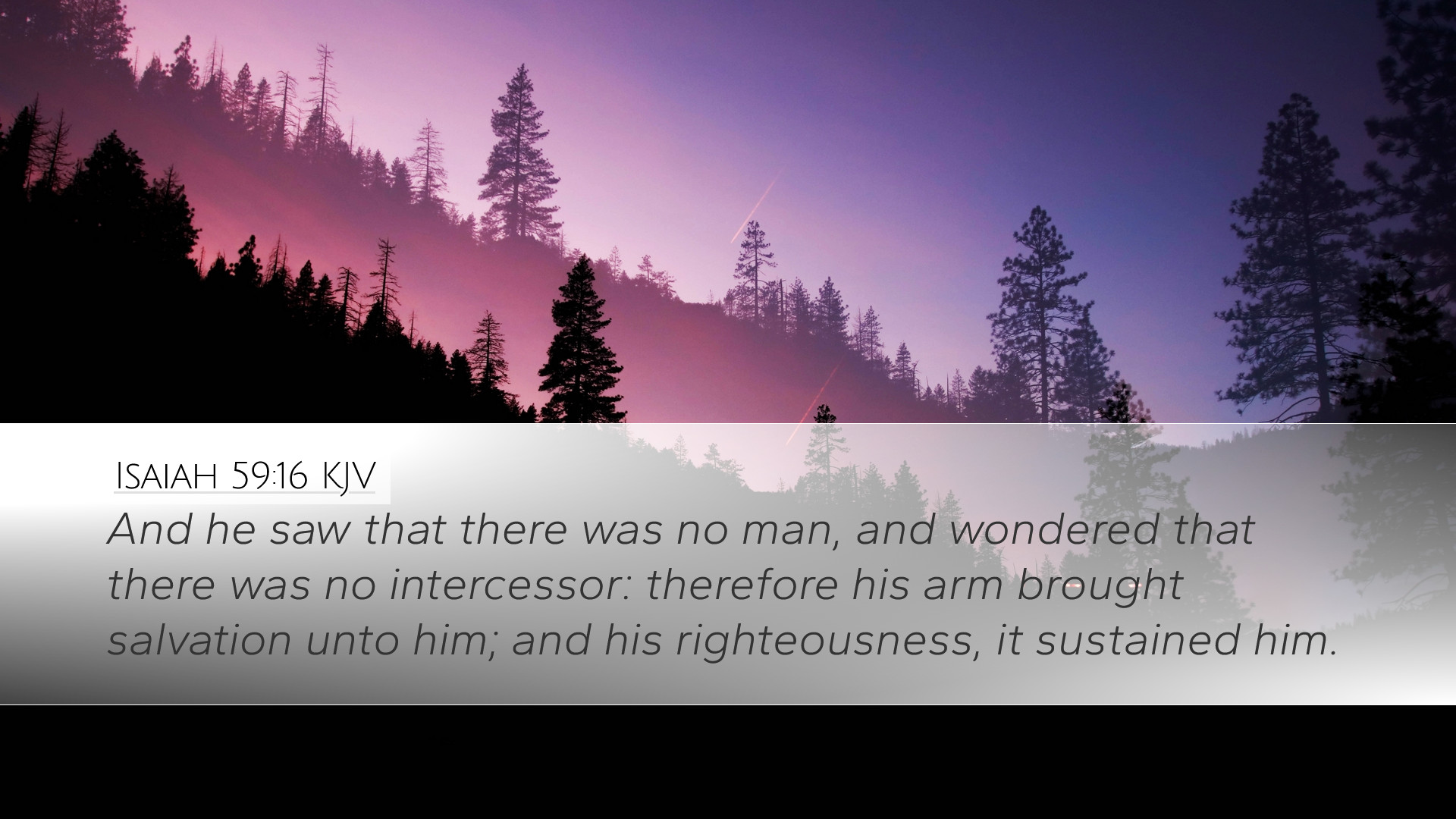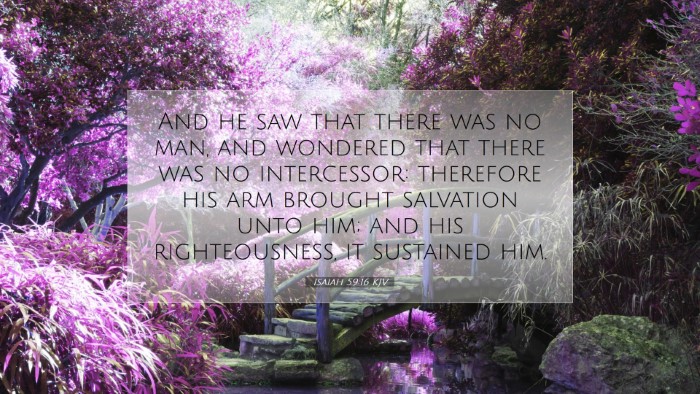Commentary on Isaiah 59:16
Isaiah 59:16: "And he saw that there was no man, and wondered that there was no intercessor: therefore his arm brought salvation unto him; and his righteousness, it sustained him."
Overview
This profound verse encapsulates the divine lamentation over the absence of a human intercessor, while simultaneously affirming God's sovereign action to bring about salvation. The insights drawn from several public domain commentaries invite a deeper contemplation of the character of God and his redemptive purposes.
God's Search for an Intercessor
Matthew Henry notes the significance of God 'looking for a man’ who could act as an intercessor. This reflects God's desire for human participation in the process of redemption. However, Henry observes that no such person could be found, which emphasizes not only the moral failures of humanity but also underscores the comprehensive need for divine intervention.
The Absence of Mediation
Albert Barnes elaborates on the phrase "there was no intercessor." He explains that, in times of spiritual and moral decline, God's people often fail to seek true mediation between them and God. The lack of an intercessor signifies the depth of Israel's estrangement from God due to their sins. This highlights the dismal state of the nation and their need for someone who could intercede on their behalf.
The Arm of the Lord
When God sees the dire situation and the absence of mediators, the text states, "his arm brought salvation." Adam Clarke interprets this 'arm' as a symbol of God's active power and willingness to deliver his people. This imagery accentuates that when human efforts fail, God's own strength is sufficient to secure salvation.
Theological Implications
This portion of the verse reveals an important theological truth — that while human instruments are often used in God's plan, ultimately, it is God's own might that brings about salvation. This underscores the central tenet of divine sovereignty in the redemptive process, which is a theme that resonates throughout scripture.
Righteousness as Sustenance
The second part of the verse speaks to God’s righteousness being the source of sustenance. Matthew Henry comments that God's righteousness equips Him to save and sets Him apart as just and able to deliver His people without compromising His holiness. It reassures believers that God's actions spring from His very nature, and thus, He is both righteous and faithful.
The Comfort of God’s Justice
Barnes further expands on the notion of God's righteousness. He proposes that God's righteousness serves not only as a foundation for His saving acts but also offers believers confidence in God's just character amidst suffering and judgment. For pastors and theologians, this reinforces the importance of teaching the nature of God as both loving and just, inviting congregations to trust in His redemptive plans.
Application for Believers
This verse is pivotal for understanding both the nature of God and the role of humanity in divine plans. The themes can be summarized in several applications:
- Recognizing Human Limitations: Believers should acknowledge their own inadequacies and the necessity of relying on God's provision for salvation.
- The Call to Intercession: Those who study this passage are reminded of the importance of prayer and intercession in their own lives, serving as mediators for others through prayer.
- Faith in Divine Sovereignty: The assurance that God will intervene highlights the need for faith in His ultimate control over salvation history.
- Understanding God’s Nature: This verse offers insights into the unwavering righteousness and justice of God, encouraging believers to seek a relationship with Him anchored in truth and faithfulness.
Conclusion
Isaiah 59:16 serves as a profound reminder of God's active role in salvation, the dire need for intercession, and the assurance of His righteous character. This verse calls believers to reflect on their role in God's redemptive narrative while ensuring that they remain anchored in faith and prayer.


